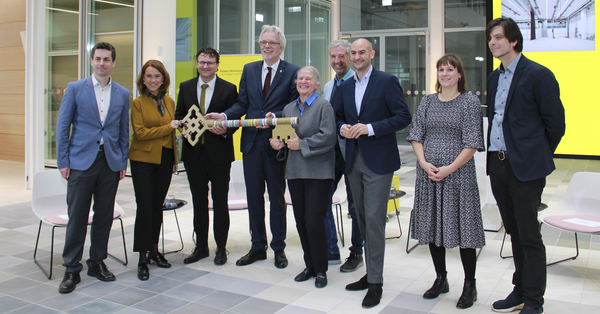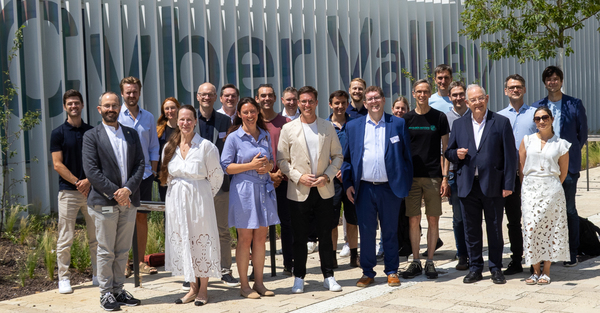Scope of Cyber Valley research expanded to include intelligent biomedical microsystems
University of Stuttgart appoints Dr. Tian Qiu, a leading scientist in the field of minimally invasive biomedical microsystems, as Cyber Valley Research Group Leader

Stuttgart – Dr. Tian Qiu will be appointed Cyber Valley Research Group Leader at the University of Stuttgart effective July 1, 2019. The "Biomedical Microsystems" group will be affiliated to the University of Stuttgart’s Institute of Physical Chemistry IPC. Following the appointment of assistant professor Michael Sedlmair (Visualization Research Center), Qiu is now the second scientist at the University of Stuttgart to be researching under the umbrella of this unique European research cooperation. The new Cyber Valley research group is supported by the Stuttgart-based Vector Foundation, which is funding the group with 500,000 euros for a period of four years.
"I am very pleased to be joining Cyber Valley," says Qiu. "I believe artificial intelligence and robotics will be the key technologies shaping our society in the future. Cyber Valley is the right environment for me to advance my research. As a former scientist at the Max Planck Institute for Intelligent Systems, and now with the University of Stuttgart, I also hope to further strengthen the cooperation between these partners."
Prof. Dr. Wolfram Ressel, Rector of the University of Stuttgart, has extended a warm welcome to Dr. Tian Qiu: "Intelligent systems for a sustainable society are the overarching vision of the University of Stuttgart. We are pleased that Dr. Qiu and his Cyber Valley research group will help to make this vision reality. At the same time, they will strengthen the emerging field of biomedical systems at the University of Stuttgart.
"Cyber Valley deals with all physical and informatic intelligent systems, whether microscopic or macroscopic. Tian Qiu's work is a great example of how intelligence is not always about data processing. We are pleased that Cyber Valley can expand its biomedical competencies with him," says Prof. Dr. Philipp Hennig, deputy spokesperson for Cyber Valley.
Tian Qiu was previously head of the "Biomedical Microsystems" research team in the "Micro, Nano and Molecular Systems" laboratory of Professor Peer Fischer, group leader at the Max Planck Institute for Intelligent Systems in Stuttgart and Professor of Physical Chemistry at the University of Stuttgart’s Institute of Physical Chemistry IPC. Among other things, Tian Qiu and his team succeeded in steering nanorobots through the dense tissue of an eyeball for minimally invasive drug delivery, which had never been achieved before.
His new Cyber Valley research group will also focus on creating new devices and microsystems for biomedical applications. The aim is to integrate actuation, sensing, and computation to advance medical procedures. He is interested in developing tools that collect large amounts of data and to learn from the data to understand the underlying principles – hence the term intelligent systems. One research focus involves learning how soft tissue deforms, which is useful for the development of augmented reality systems and future soft robots. The group has ongoing collaborations with medical teams to integrate the technologies with augmented reality systems for minimally-invasive surgery and training.
“I hope the data collected from our new hardware will allow the development of digital models of the surgery, which will in turn help optimize tools and surgical procedures for future medicine,” Qiu explains. He plans to build up a multidisciplinary team at the University of Stuttgart, including engineers, scientists, and physicians, to tackle the technology challenge jointly.
Dr. Tian Qiu received his Ph.D. in Biotechnology and Bioengineering from École Polytechnique Fédérale de Lausanne (EPFL) in Switzerland. He serves as an associated fellow at the Max Planck ETH Center for Learning Systems, and as an instructor for the International Max Planck Research School for Intelligent Systems(IMPRS-IS). He won the National Award for Outstanding Self-financed Chinese Students Abroad and the Best Microrobot Design Award at Hamlyn Symposium on Medical Robotics.
Related Articles



